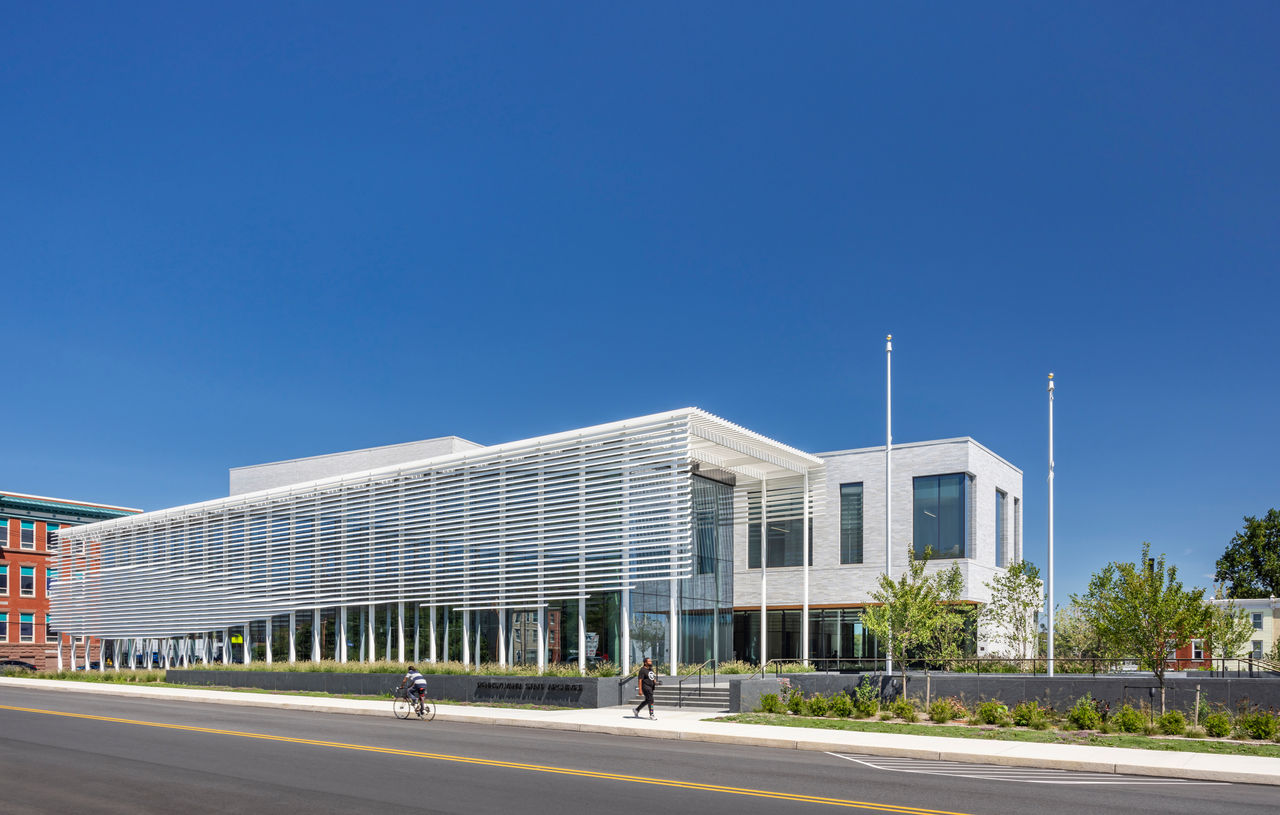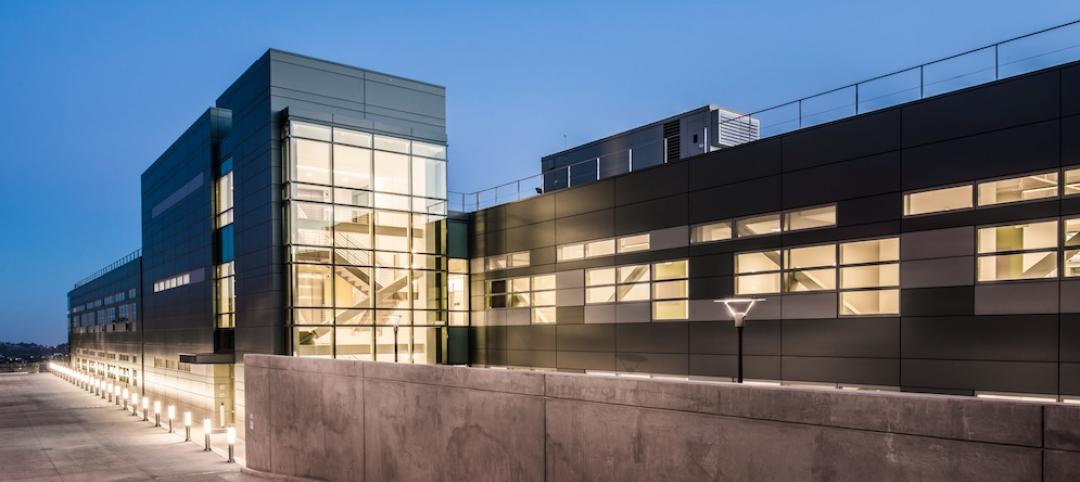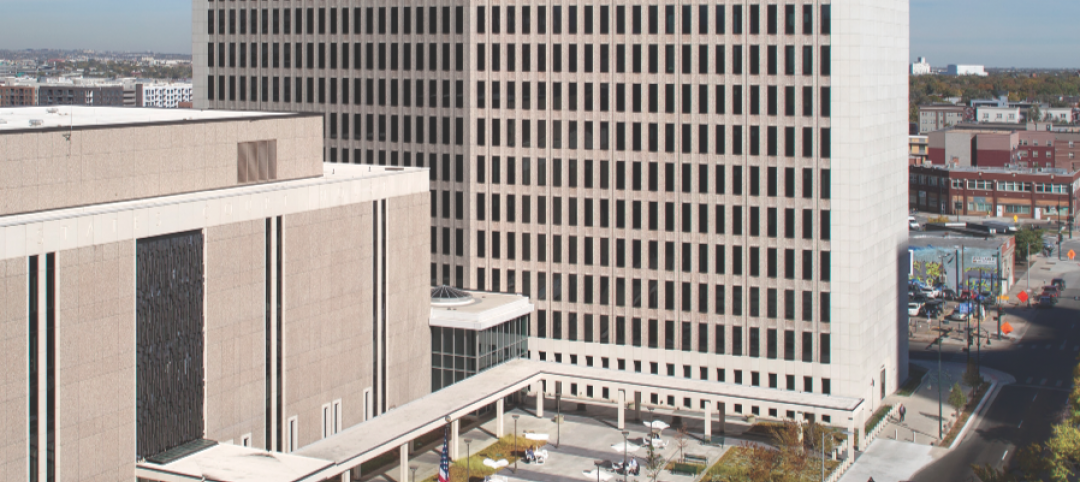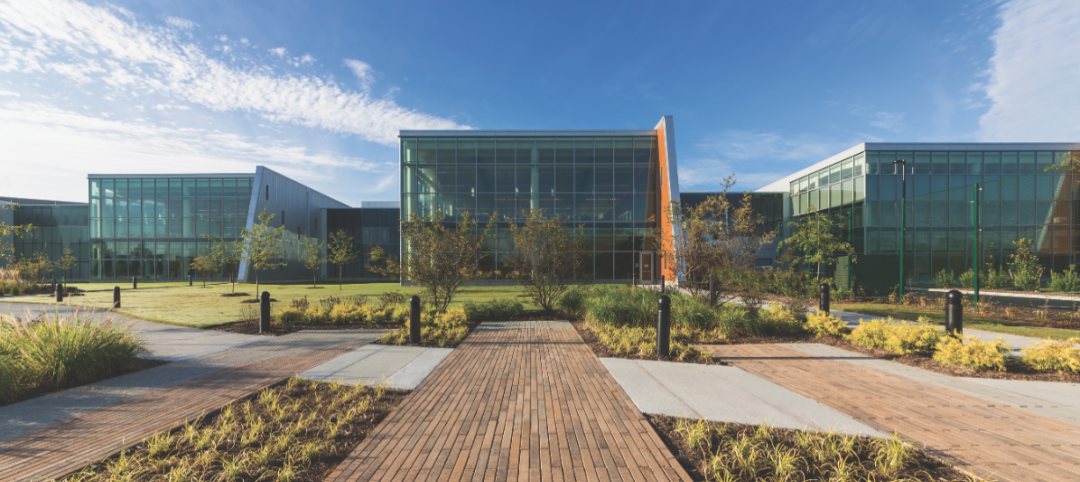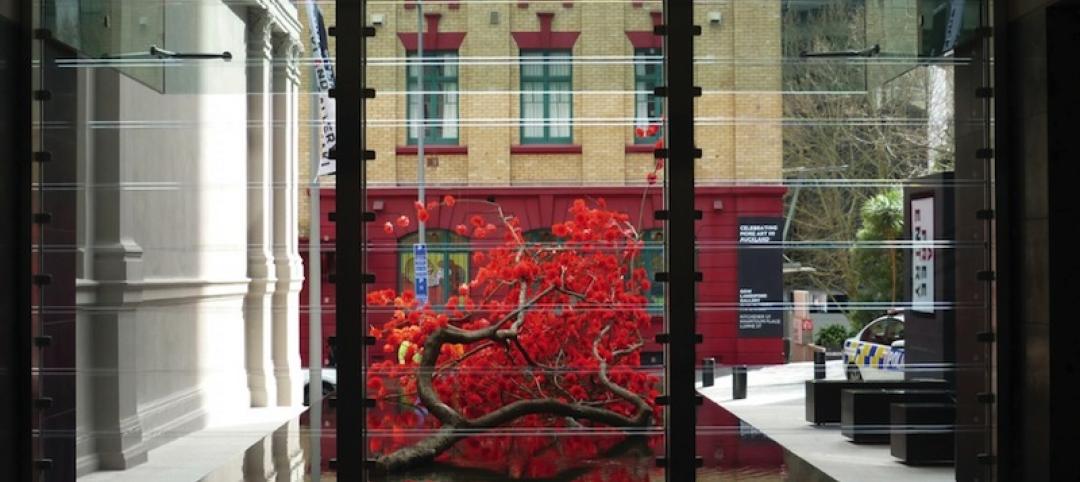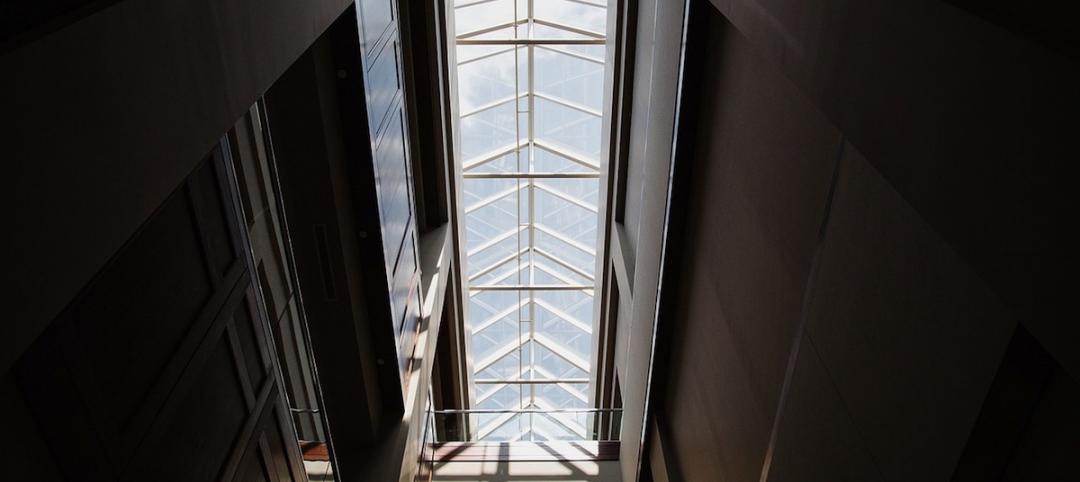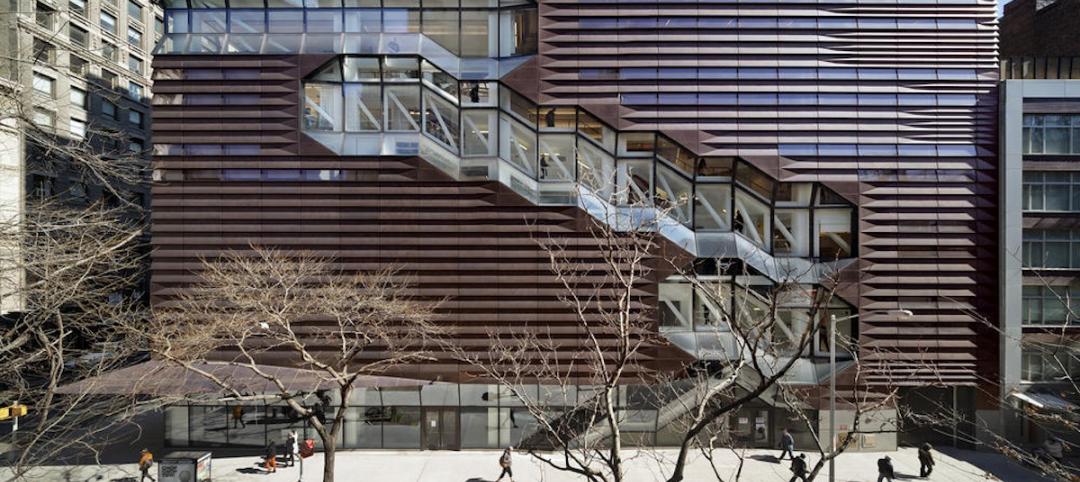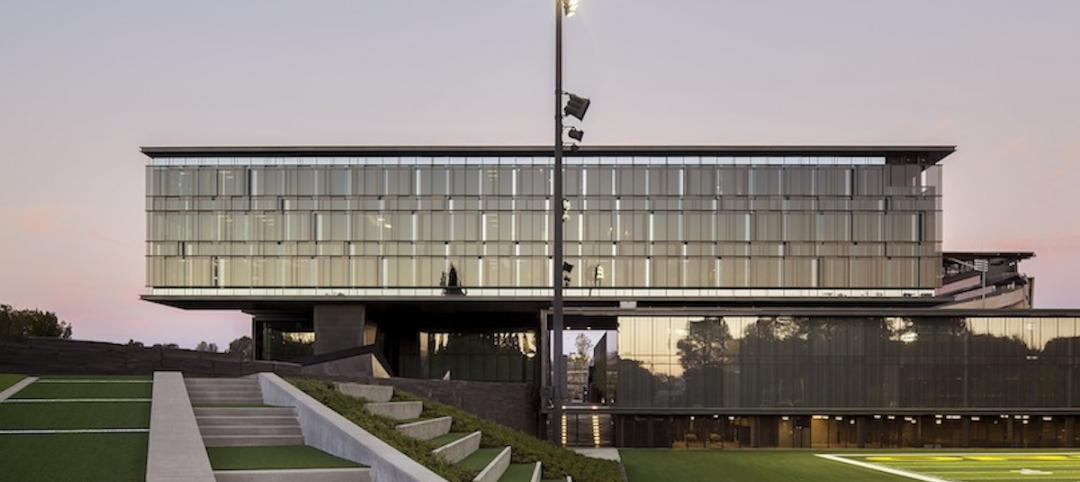Work was recently completed on a new Pennsylvania State Archives building in Harrisburg, Penn. The HGA-designed, 146,000-sf facility offers numerous amenities, including computers, scanners, printers, a kitchenette with seating, lockers, a meeting room, a classroom, an interactive video wall, gallery, and all-gender restrooms. The features are all intended to provide a welcoming and comfortable environment for visitors.
The state’s Division of Public Records was created in 1903. It became recognized as its own bureau upon joining the Pennsylvania Historical and Museum Commission (PHMC) in 1945. By 2000, its first permanent home in the Capitol Complex was reaching capacity and its low floor-to-floor height, together with a small floor plate, affected operational efficiency and would not allow for necessary environmental upgrades.
The goal was to find a site close to the Capitol Complex, and an urban parcel in a neglected neighborhood was selected. Built amid the few remaining rental row houses, light commercial structures, and the city’s rail yards, the facility is intended to have a positive impact on the neighborhood and city.
The building’s features include:
Collections space: A glazed-brick volume and high-thermal-mass concrete structure forms the body of the building, housing acid-free boxes and flat-file maps on high density shelving. The rectangular volume is windowless, well insulated, and projective. Total storage on three floors is 47,000 sf with space for growth, and 12-foot-tall high-density shelving makes the collections rooms highly efficient. Archives’ storage rooms are tightly controlled to keep out all daylight
Mechanical systems: A metal-clad mechanical bay links efficient HVAC systems to archive rooms on each floor, providing tightly modulated temperature and humidity to each kind of environment and material—paper, print photography, or film.
Public space: A double-height glass and aluminum pavilion set in a public garden with native plants allows for individual and group research with a sense of openness and accessibility.
The facility was designed to provide a climate resilient, durable, 50-to 100-year space to protect the archives while enduring extreme conditions. Areas of concern included railroad accidents, extreme or intense precipitation, theft, pests, moisture/mold growth, extreme wind, excessive snow load, and power failure.
To address the railroad yard disaster concern, a sensor was specified for the mechanical louvers that would shut down air intake if any harmful chemicals at elevated concentrations are detected. To mitigate extreme precipitation, no roof drains or roof penetrations are located over the archive rooms. Rain landing on the low slope roof runs down to roof drains over the mechanical rooms.
To prevent theft, security from the facility includes cameras and restricted access to the original documents room where staff members monitor visitors’ movements. Staff entry and exit paths with security systems are choreographed as well, for additional security.
HGA negotiated with electric utility Pennsylvania Power and Light to get two points of electricity service, one primary and one backup, each arriving from a different buried feeder line path to the site. In addition, the facility includes a standby generator with 48 hours of fuel capacity.
Ash wood was used for all interior building woodwork. Now disappearing across the country due to the Emerald Ash Borer, the wood wall panels will one day illustrate the beauty of the once-common native tree. Additionally, the site’s original granite street curbs were used as planter curbs and boulders found buried there were used as landscaping features in the public garden. The stone for the exterior pavers, interior floors, and the front desk was quarried in the Appalachian Mountains, and the glazed brick was manufactured in Pennsylvania.
On the project team:
Owner and/or developer: Commonwealth of Pennsylvania
Design architect: HGA and Vitetta
MEP engineer: HGA
Structural engineer: HGA
General contractor/construction manager: Mascaro Construction
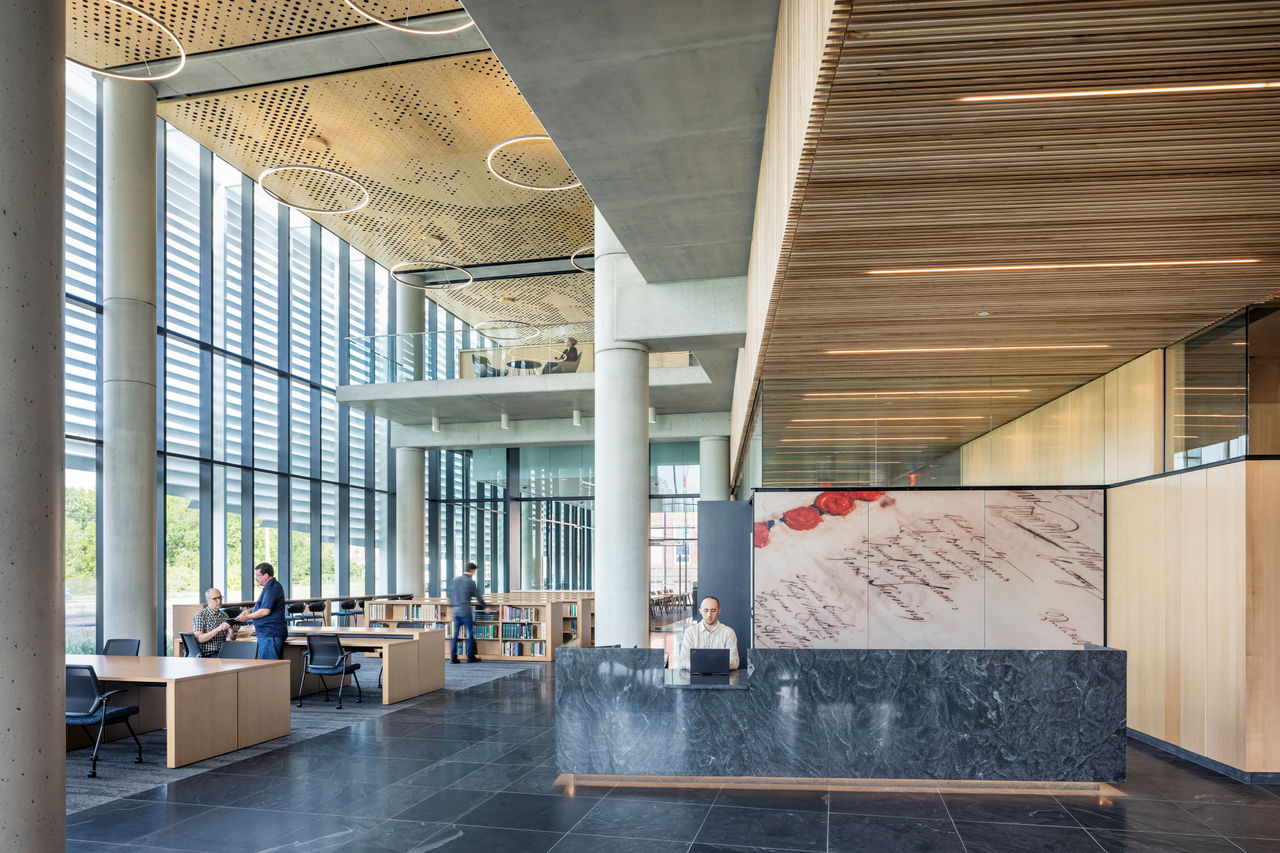
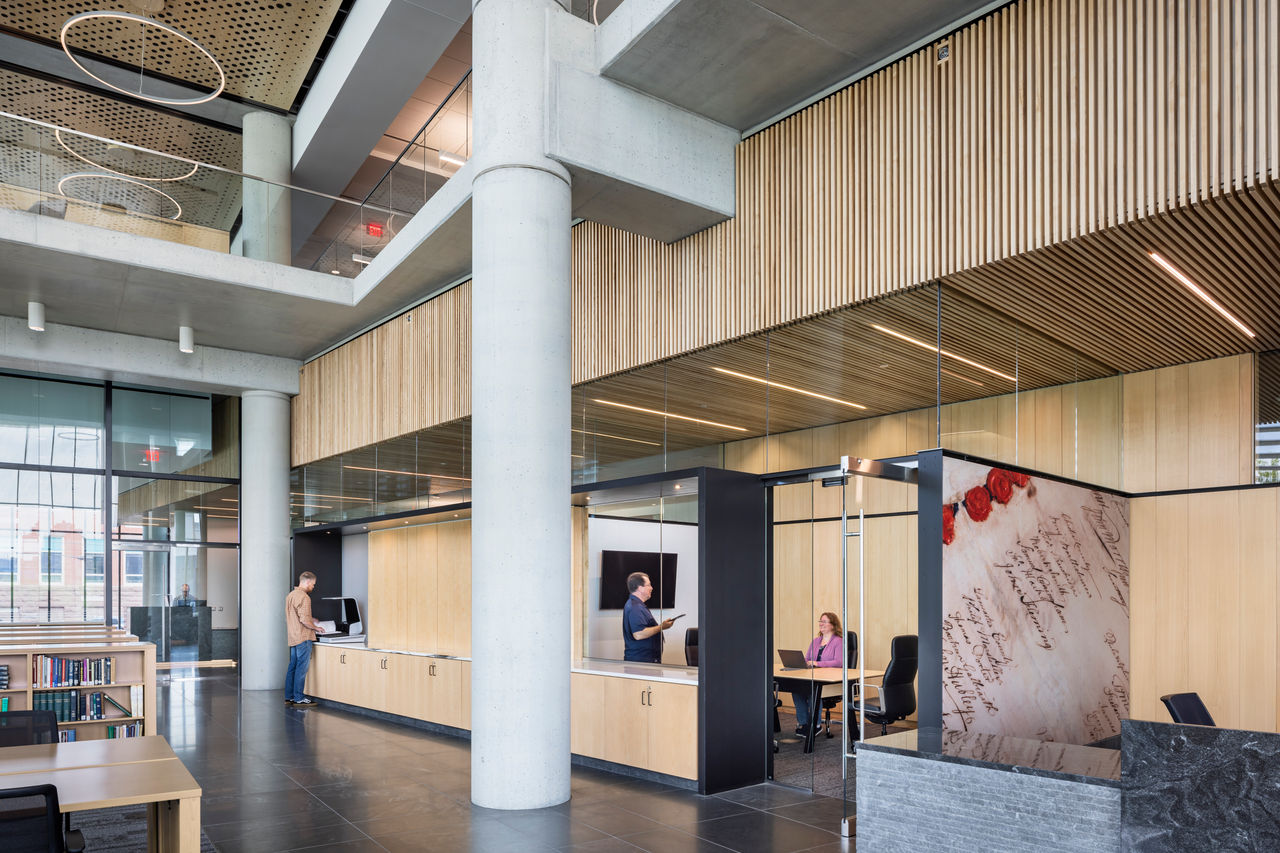
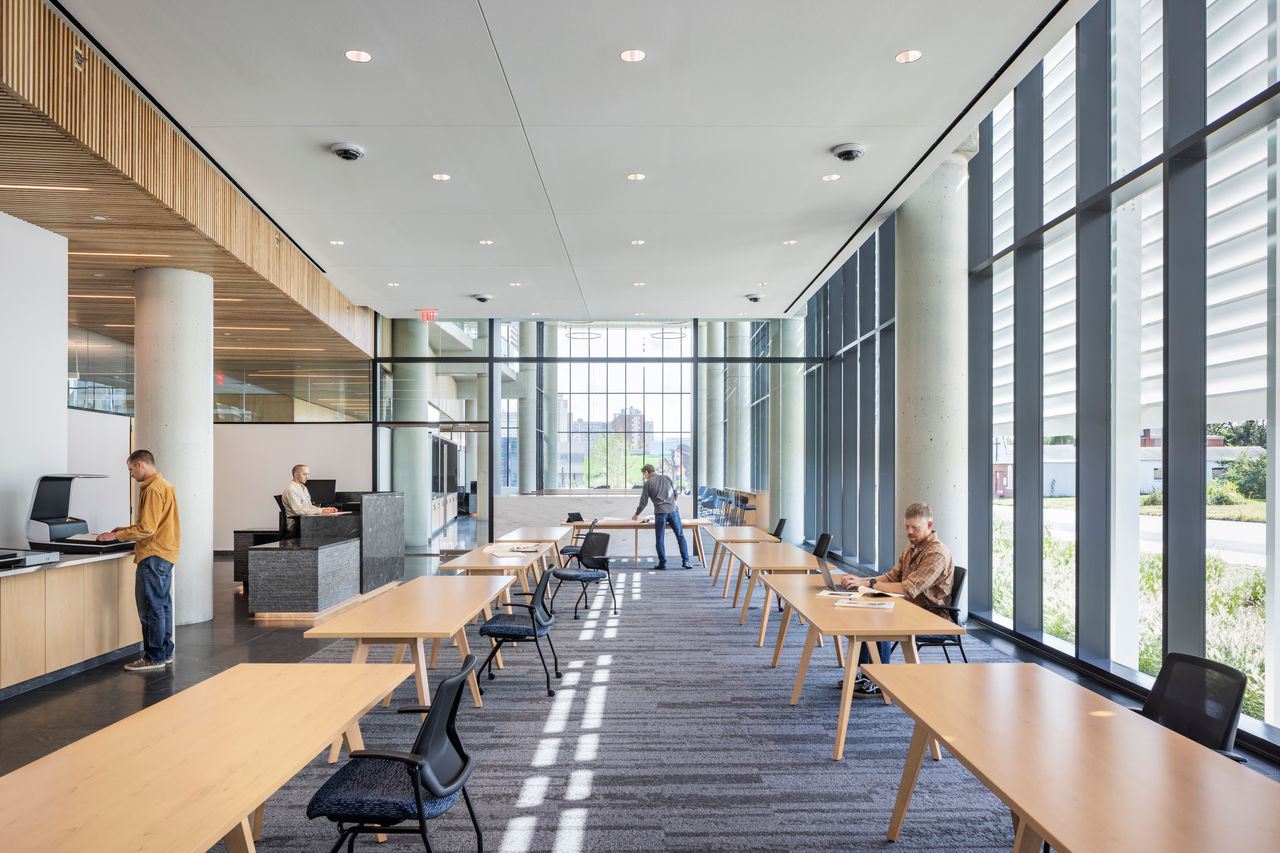
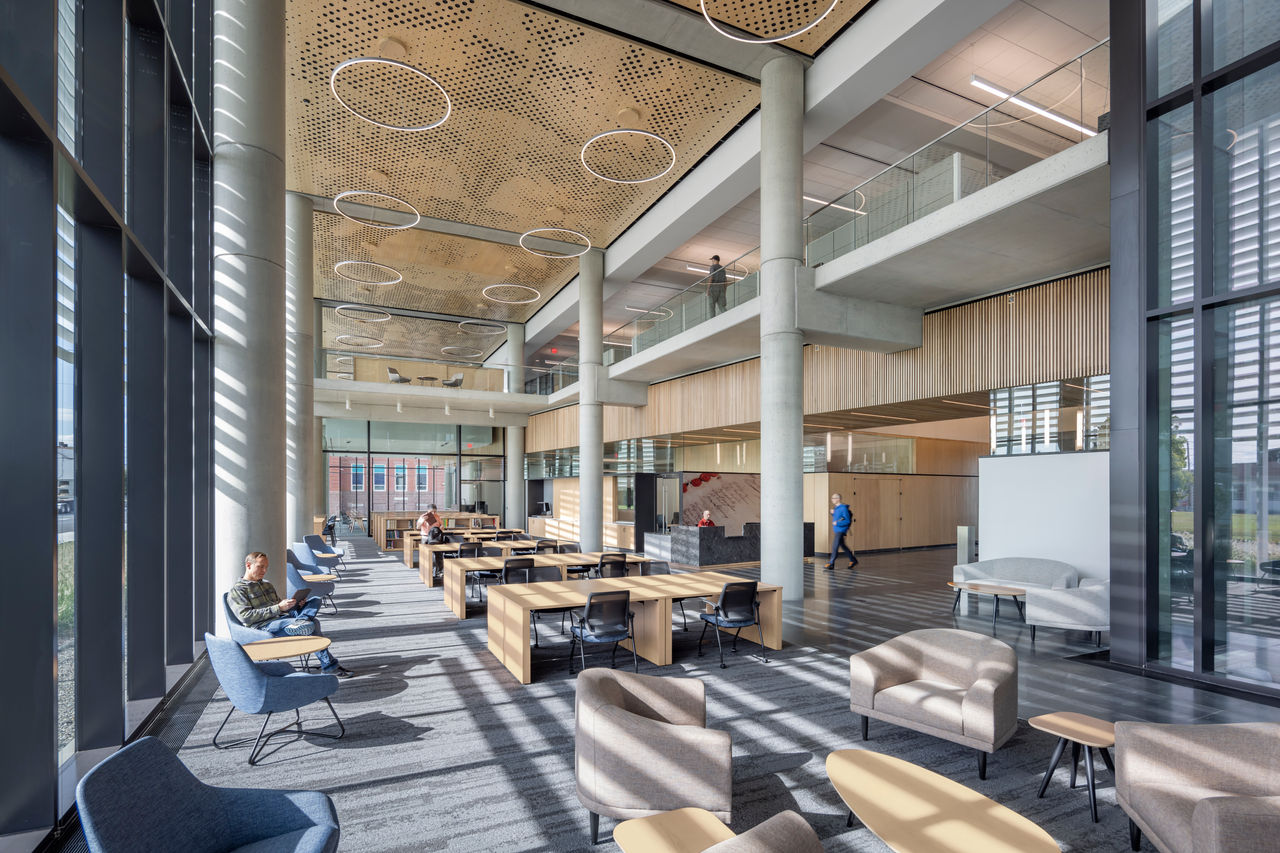
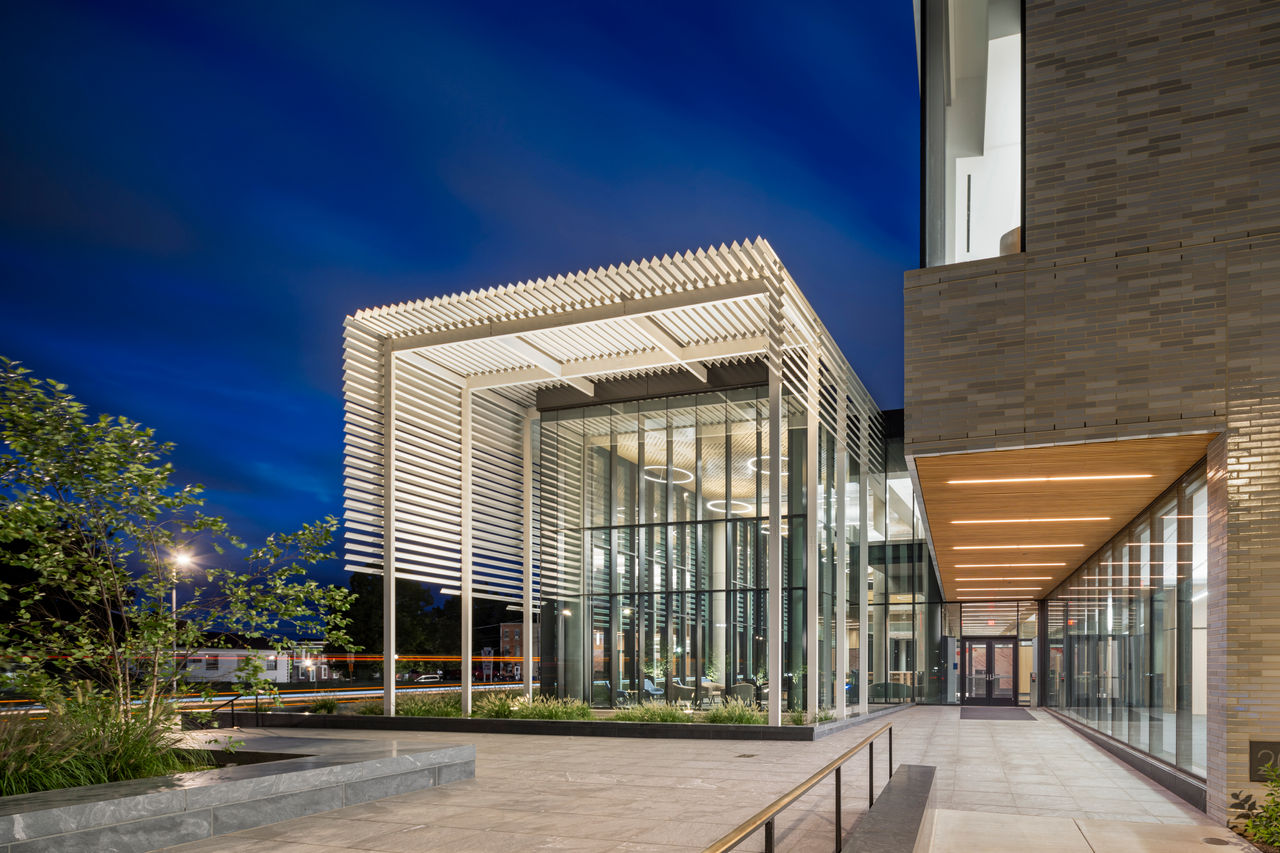
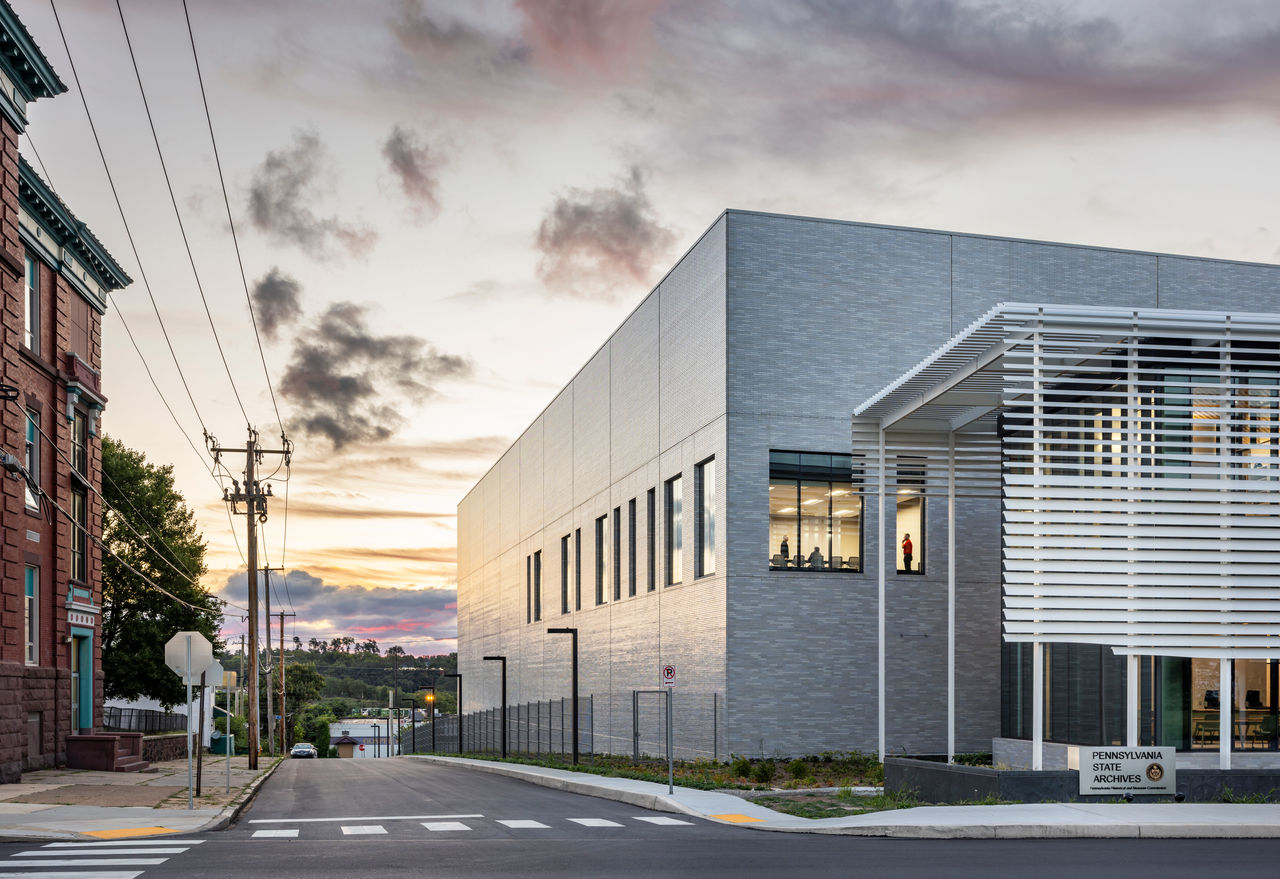
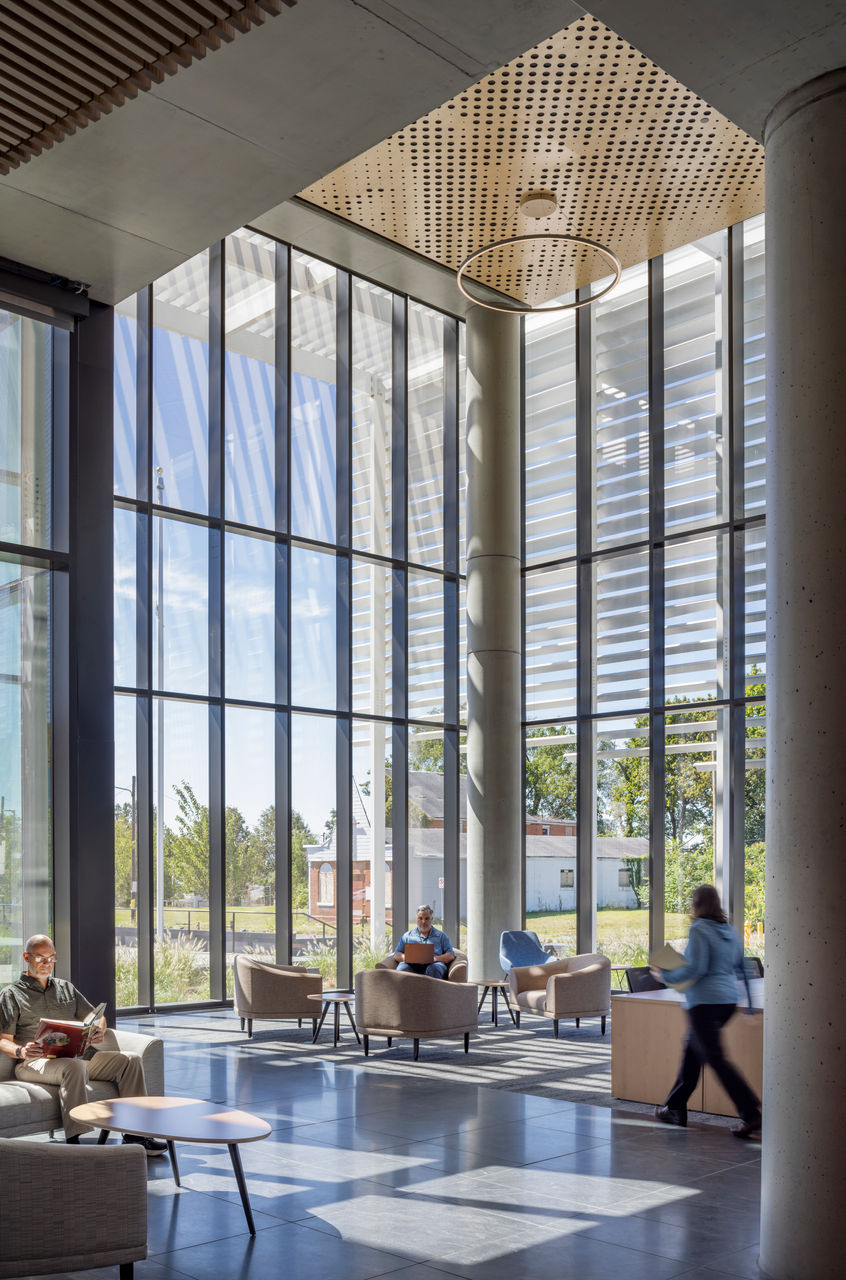
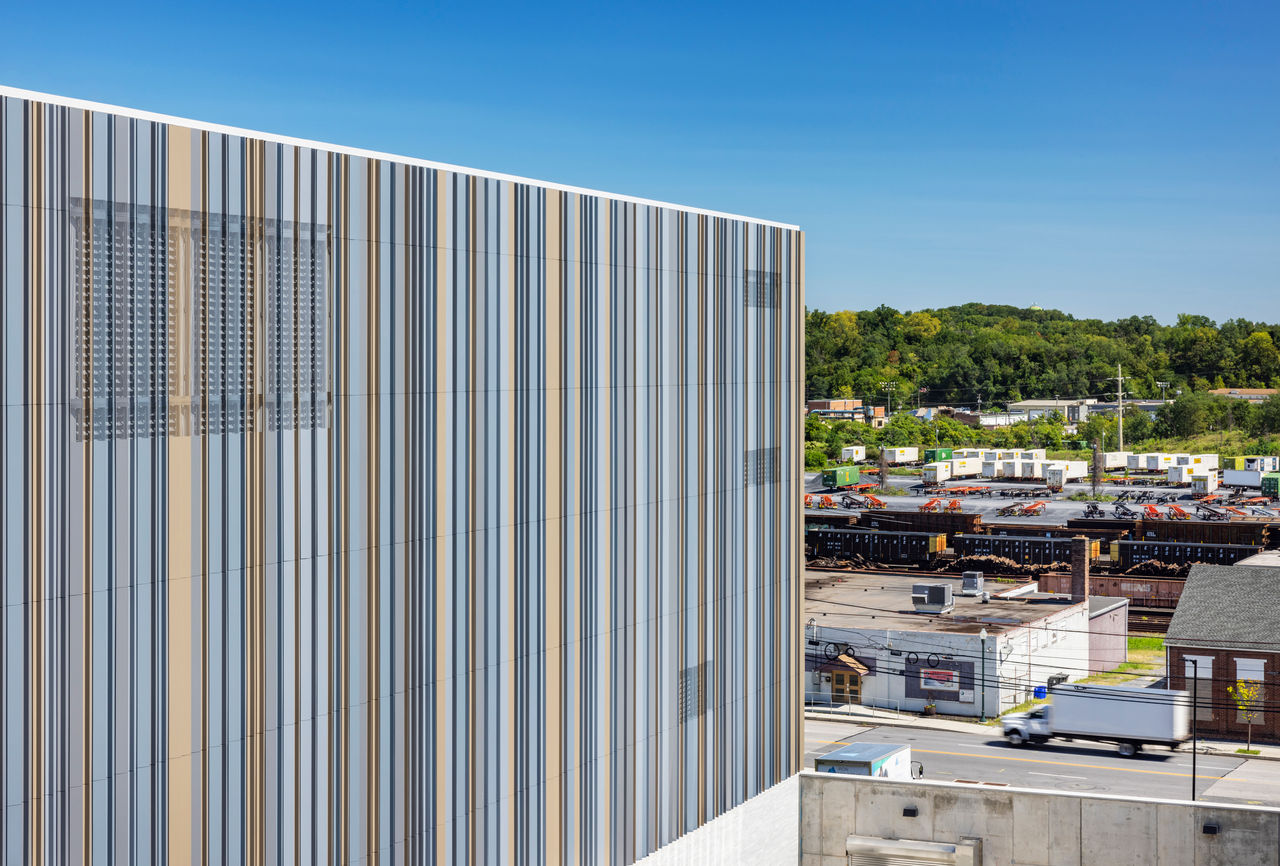
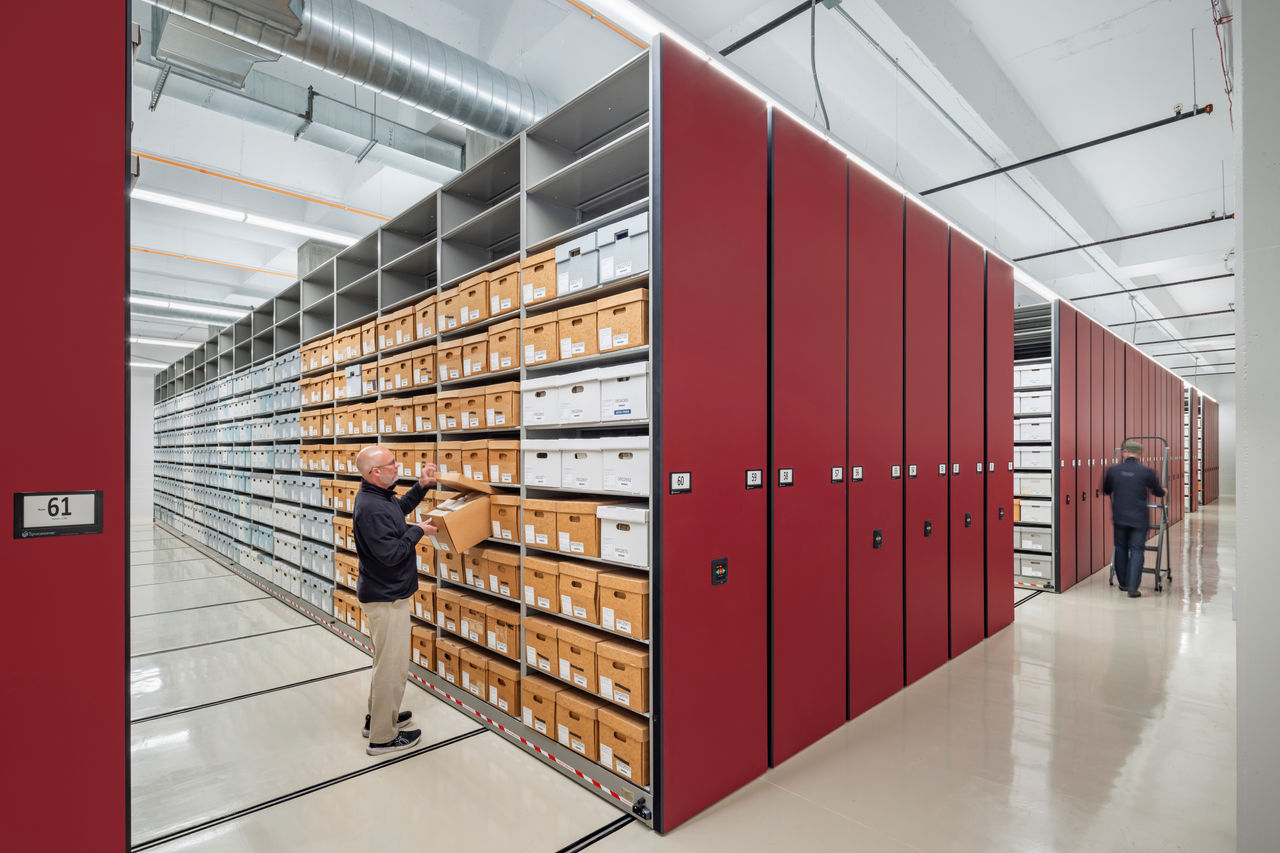
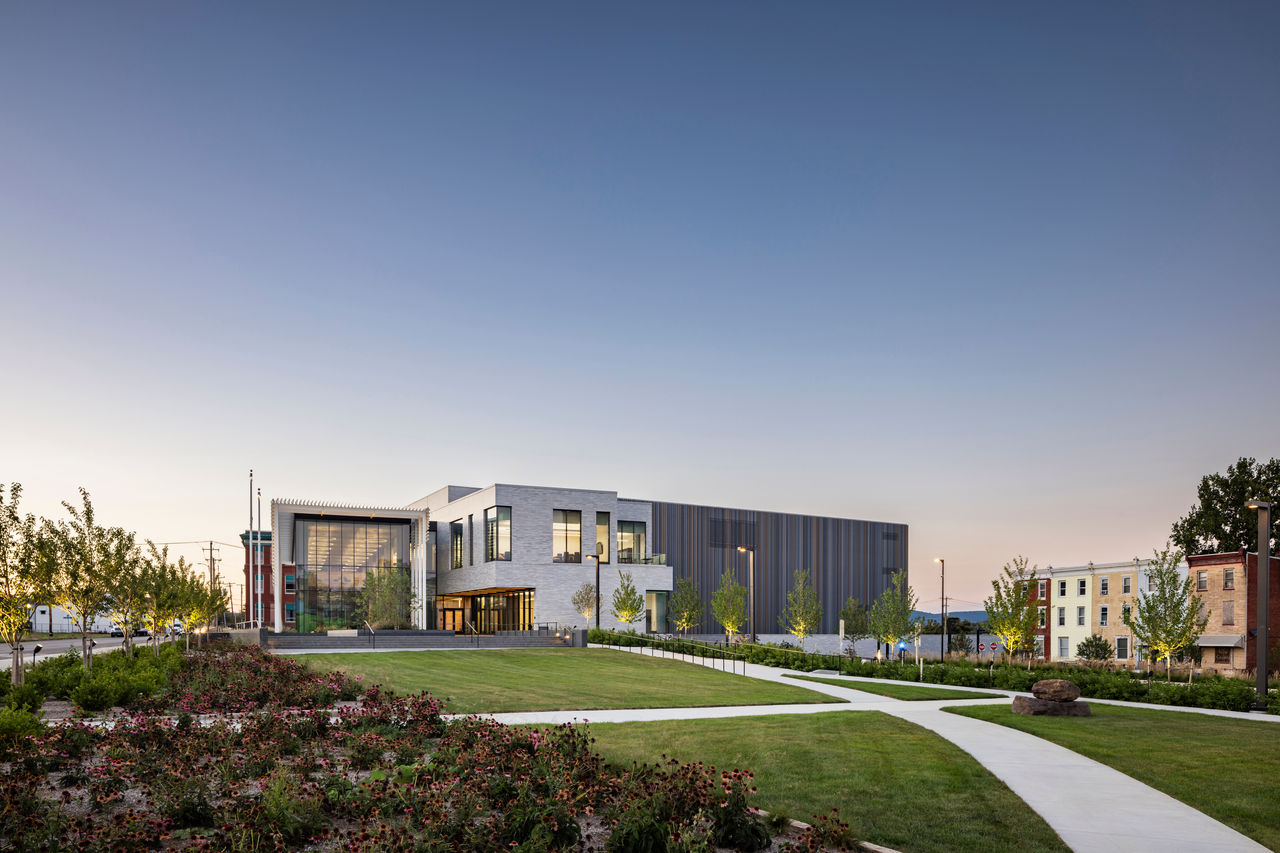
Related Stories
Government Buildings | Dec 18, 2015
Sustainable design is the only option for public-sector clients
Government projects that feature sustainable practices like high-efficiency LED lighting, improved HVAC systems, and rooftop solar arrays are no longer the exception.
Giants 400 | Aug 7, 2015
GOVERNMENT SECTOR GIANTS: Public sector spending even more cautiously on buildings
AEC firms that do government work say their public-sector clients have been going smaller to save money on construction projects, according to BD+C's 2015 Giants 300 report.
Giants 400 | Aug 6, 2015
GREEN BUILDING GIANTS: Green building movement hits a new plateau, but the underlying problems remain
Today, the green building movement is all about eliminating toxic substances in building materials and systems and, for manufacturers, issuing environmental and health product declarations. Whether these efforts will lead to healthier products and building environments remains an open question.
Fire and Life Safety | May 27, 2015
7 bold applications and innovations for fire and life safety
BD+C’s roundup features colorful sprinklers for offices, hotels, museums; a fire-rated curtain wall at a transit hub in Manhattan; a combination CO/smoke detector; and more.
Codes and Standards | May 1, 2015
New energy efficiency program, Tenant Star, gets OK from Congress
The voluntary program for commercial and government buildings is modeled after Energy Star.
Wood | Apr 26, 2015
Building wood towers: How high is up for timber structures?
The recent push for larger and taller wood structures may seem like an architectural fad. But Building Teams around the world are starting to use more large-scale structural wood systems.
Green | Apr 22, 2015
AIA Committee on the Environment recognizes Top 10 Green Projects
Seattle's Bullitt Center and the University Center at The New School are among AIA's top 10 green buildings for 2015.
Green | Apr 22, 2015
GSA's Federal Center South Building honored with AIA Top Ten Plus Award for 'verified' sustainable performance
The annual award recognizes green building projects that have quantifiable metrics demonstrating the performance and positive impact of the sustainable design.
Green | Apr 3, 2015
Georgia may ban use of LEED on state buildings
Georgia's state legislature is considering a measure to require all state buildings to only use green building standards that permit the use of Georgia's lumber.
Structural Materials | Mar 30, 2015
12 projects earn structural steel industry's top building award
Calatrava's soaring Innovation Science and Technology Building at Florida Polytechnic University is among the 12 projects honored by the American Institute of Steel Construction in the 2015 IDEAS² awards competition.


